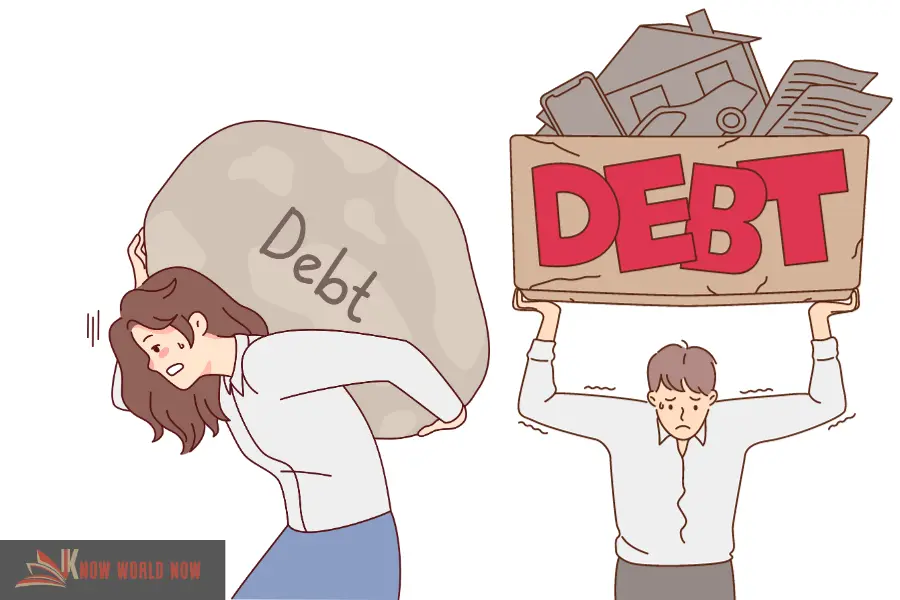Financial stability is a goal many individuals strive for, but not everyone achieves. With the allure of credit cards, a consumerist society pushing us to purchase more, and unforeseen life situations, it’s no wonder many find themselves in need of debt loans with bad credit.
The silver lining is that recognizing the patterns and behaviors that keep you there is the first step to breaking free. By addressing these, you can forge a path out of the red and into the black. This article explores some telltale signs you might always be in debt if you don’t take corrective action.
Debt loans with bad credit are a quick fix for many, but they often come at a cost. These loans generally have high-interest rates and terms that aren’t favorable to the borrower. While they might seem like a solution in the moment, they can lead to a cycle of borrowing that exacerbates the problem.
Living Beyond Your Means
One of the primary ways individuals fall into debt is by consistently spending more than they earn. This could manifest as buying things you can’t afford or constantly upgrading your lifestyle. If you find that you’re regularly using credit to cover basic expenses or splurging without having savings to back up your spending, this might be a red flag.
Tip: Create a budget and stick to it. Understand where your money is going each month and prioritize needs over wants.
Not Having an Emergency Fund
Life is unpredictable. Emergencies – whether it’s a medical situation, car repair, or unexpected home expense – can arise without warning. Without an emergency fund, these unexpected costs can lead straight to debt.
Tip: Start by saving a small amount from each paycheck. Even $25 or $50 can add up over time. Aim for three to six months’ worth of expenses in your emergency fund.
Only Making Minimum Payments
If you’re only making the minimum payments on your credit cards or loans, not only are you prolonging your debt, but you’re also accruing more interest than necessary. This can significantly extend the time it takes to pay off your debt.
Tip: Try to pay more than the minimum amount each month. Even a little extra can cut down the interest and reduce the overall amount you owe.
Ignoring the Reality
Denial can be powerful. Avoiding looking at bank statements or dodging calls from creditors will only worsen your financial situation. Facing your debts head-on, understanding what you owe, and crafting a plan to tackle it is crucial.
Tip: Sit down and list out all your debts. Create a repayment plan and consider speaking to a financial advisor for guidance.
No Financial Goals
Without clear financial goals, it’s easy to spend aimlessly. Goals provide direction, motivation, and a clear path forward.
Tip: Set short-term and long-term financial goals. Whether it’s paying off a particular debt, saving for a vacation, or purchasing a home, having a target can keep you focused and disciplined.
Falling for Quick Fixes
Beware of schemes or offers that promise to resolve your debt overnight. While they might be tempting, they often lead to more financial woes in the long run.
Tip: Do thorough research before committing to any debt solution. There are genuine resources and organizations that can assist, but always approach with caution.
Conclusion
Debt can be daunting, but recognizing the signs and patterns that keep you in it is the first step toward financial freedom. By addressing these behaviors and implementing the tips mentioned, you can begin your journey towards a debt-free life.
Remember, every financial decision you make today impacts your future. Make choices that pave the way for a brighter, debt-free tomorrow.



![10 Best Bags for Nurses | Personal Recommendation [2023] 4 Best Bags For Nurses Reviews in 2021](https://knowworldnow.com/wp-content/uploads/2022/12/Best-Bags-For-Nurses-Reviews-in-2021.webp)



![F95Zone Games - The Ultimate Guide for 2021 [F95Z Guide] 8 F95Zone Games](https://knowworldnow.com/wp-content/uploads/2021/07/ArTtW5LrK3b-z-0-y-637f48d86203817a9042a857.webp)